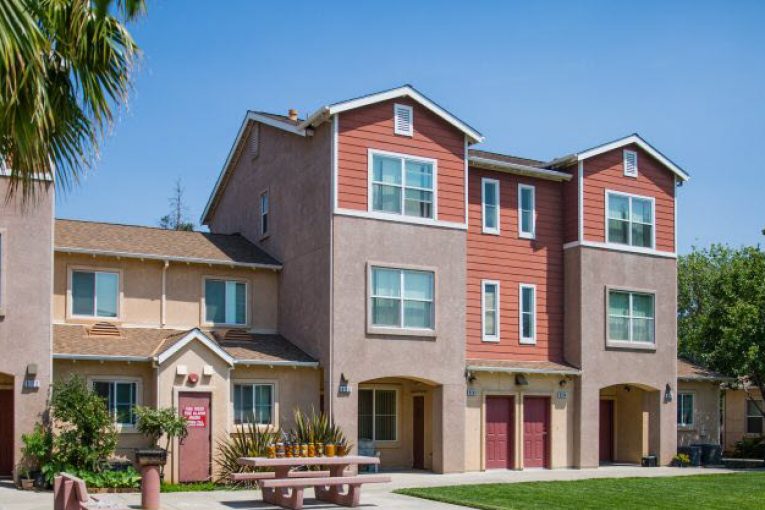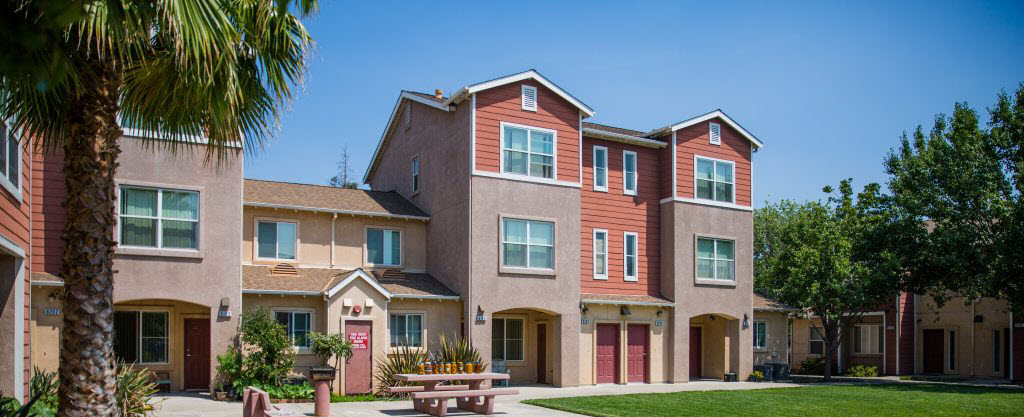

By David M. Greenwald
Executive Editor
Davis, CA – In my view, affordable housing along with homelessness and housing in general, are one plank of what I would call the triple crisis facing the city of Davis. While it might be possible for the tax measure to help fund the city’s affordable housing fund, it is not going to come close to addressing the problem overall.
This is a very important distinction that must be made, because there seems to be some confusion among some that the proposed revenue measure might go further than that.
For example, one comment on the Vanguard this week: “Last week the council refused to even consider asking UCD to help fund the affordable housing trust fund and instead are going to ask the rest of us to pay a increased sales tax. I mean, really? You won’t  even ask?”
even ask?”
The word “instead” is misplaced. It implies either/or. That UC Davis could help fund affordable housing trust fund or the taxpayers could.
The reality is that any contribution that UC Davis could potentially make to Davis affordable housing is a drop in the bucket for what we need. By the same token, any money that the revenue measure would be making toward affordable housing is a drop in the bucket for what we need.
Given, it’s not clear to me how much we should be talking about in this possibility.
A long-time local resident who has made their career based on affordable housing pointed out to be maybe a month ago just how much it costs to actually build affordable housing.
One million dollars to the affordable housing fund sounds like a lot, but right now with the cost of each affordable unit being about $650,000 to build, how much is $1 million (which is what they are talking about for the Housing Trust Fund) going to get us?
It wasn’t until I listened to the comments by Assistant City Manager Kelly Stachowicz at the forum a few weeks ago that I really recognized how intractable this problem probably is.
Redevelopment was kind of the holy grail of affordable housing funding. But Stachowicz pointed out that at its height the city was getting up to $2 million a year from redevelopment, which was funding through the increment tax.
Nothing that the state has done in the time since it was ended in 2012 comes even close to that kind of money.
And don’t get me wrong, $2 million a year is a lot of money and a lot better than any ongoing source we have now, but even that is probably not going to solve our affordable housing problem.
So this idea that the revenue measure is going to help us solve this problem by siphoning off maybe a $1 million in actual money each year is not accurate. The idea that then we could get UC Davis to fund that *instead* is not going to solve the problem either.
Maybe we should ask and see if possibly we could get $1 million to fund student affordable housing—or faculty housing, I guess— *in addition to* the revenue measure?
It might not be a bad idea as long as we don’t delude ourselves into believing that it is a reason not to go forward with a revenue measure.
With that said, I want to reiterate a point I’ve made previously—it may not be costless to ask UC Davis to fund things like affordable housing in the community.
This is a point I made in last week’s column.
One thing that continues to trouble me is that a segment of the population seeks to blame UC Davis for our own fiscal and housing choices that have had detrimental impacts on this community.
UC Davis has basically punted on a lot of new investments in the community. There was a big deal made out of the MOU with UC Davis with respect to housing and other impacts—and past leaders pounded their chests when UC Davis agreed to the MOU.
But, like many things, these celebrations are perhaps penny-wise and pound-foolish.
UC Davis is largely the 800-pound gorilla in our community. It does what it wants. It’s willing to work with the local community when it’s to its advantage. But the idea that we can force the university to do things is absurd.
Moreover, every time we try, we harm our relations with them.
For example, we may have gotten the MOU out of the university; when it came time to plan and locate a major new investment like Aggie Square, the university decided to go to Sacramento. Sure, you can argue that that specific investment makes sense in Sacramento, but, at the same time, there is the fact that they didn’t have to fight the community to get it approved and built.
The fact is that UC Davis wouldn’t even put its full force behind any of the proposed innovation centers in the city—even when they weren’t called to do anything other than support them.
Is the city better off having the MOU or is the city better off having a version of Aggie Square generating ongoing revenue and bringing in millions in jobs and other multiplier effects?
The bottom line I think, is if we are going to have an affordable housing fund, $1 million is a drop in the bucket and we need more—much more—in terms of recurring annual funding to make it actually make a difference.
As such, UC Davis could not replace the city funding affordable housing—it would need to augment it.


The above statement re the seemingly smooth development and approval process of Aggie Square is not correct.
There was a huge local community pushback at the time because of concerns of neighborhood gentrification and displacement of lower income rsidents. In fact, there was a lawsuit brought by a neighborhood group named Sacramento Investment Without Displacement which alleged CEQA violations by the project failing to adequately account for traffic and pollution in addition to the charges of displacement and gentrification in the neighborhood. It was ultimately settled with a commitment from UC Davis to put additional millions into a local low income housing trust fund in addition to the subsidized low income housing on site.
Hmm…Sounds like Davis to me.
I’ll say it once again, it seems the only solutions this community has for funding things is to beg the state, feds, UCD for money…or to raise taxes. I wonder if it’s because of all the academics in this community that are used to begging for grant money. There’s no thought whatsoever about creating a sustainable community business venture with the goal of creating a stream of funding to subsidize affordable housing. Or in other words; if real estate developers/homebuilders can make money off the development, construction and sales of homes, why can’t cities do the same in efforts to create and fund affordable housing?
You could take $1M. Buy some land, get a construction loan and maybe build out 6 units (I’m guesstimating; give or take a unit and couple $100K). Sell one of them (assuming you record a condo map) for an immediate infusion of cash. Rent out the rest at market rate for a few years to help payback the loan. Then transition 3 of the units into workforce housing and affordable housing. Keep two units at market rate to subsidize current and future affordable housing units. The greatest obstacle for the development of new units is usually the city itself. In fact financial partners and construction loans heavily factor the political climate of a city into their decisions. The city itself being the developer greatly removes much of the risk and likely opens up funding sources. The city gets to directly control some of it’s workforce housing units. So it could a lot for an entry level police officer, fire fighter or some other city worker to get a workforce housing unit.
Question – ” … if real estate developers/homebuilders can make money off the development, construction and sales of homes, why can’t cities do the same in efforts to create and fund affordable housing?”
Answer – “Because most municipal governments are incompetant”